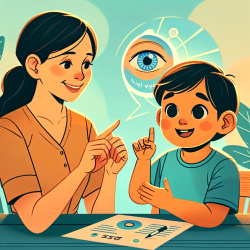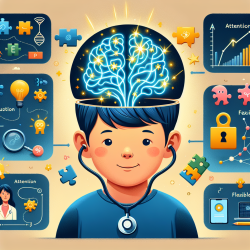As practitioners dedicated to creating optimal outcomes for children, understanding the impact of sign language on the quality of life for deaf individuals is crucial. The research article titled The Relationship between Knowing Sign Language and Quality of Life among Italian People Who Are Deaf: A Cross-Sectional Study provides compelling data-driven insights that can significantly enhance our practice. This study investigates the relationship between learning Italian Sign Language (ISL) and various dimensions of quality of life (QoL), including social anxiety, self-esteem, and life satisfaction among deaf individuals.
Key Findings
The study involved 182 deaf Italian adults and revealed several important findings:
- Deafness does not significantly affect life satisfaction and self-esteem.
- Learning ISL is associated with lower levels of social anxiety.
- Participants who learned ISL as their primary language (before the age of 18) showed better outcomes in social anxiety and self-esteem compared to those who learned it later or never learned it.
Implications for Practitioners
These findings highlight the importance of early exposure to sign language for deaf children. Here are some actionable steps practitioners can take to implement these insights:
- Encourage Early Learning: Advocate for early sign language education for deaf children to improve their social and emotional well-being.
- Promote Bilingual Education: Support a bilingual approach that combines sign language and oral language to enhance cognitive and communicative development.
- Reduce Social Anxiety: Incorporate sign language into therapy sessions to provide a more inclusive and less anxiety-inducing environment for deaf children.
Encouraging Further Research
While this study provides valuable insights, there is a need for further research to explore the long-term impacts of sign language on quality of life. Practitioners are encouraged to engage in or support research initiatives that investigate these areas more deeply.
Conclusion
Understanding the relationship between sign language and quality of life can guide us in making informed, data-driven decisions that benefit deaf children. By promoting early and consistent use of sign language, we can help reduce social anxiety and enhance self-esteem and life satisfaction for our young clients.
To read the original research paper, please follow this link: The Relationship between Knowing Sign Language and Quality of Life among Italian People Who Are Deaf: A Cross-Sectional Study.










